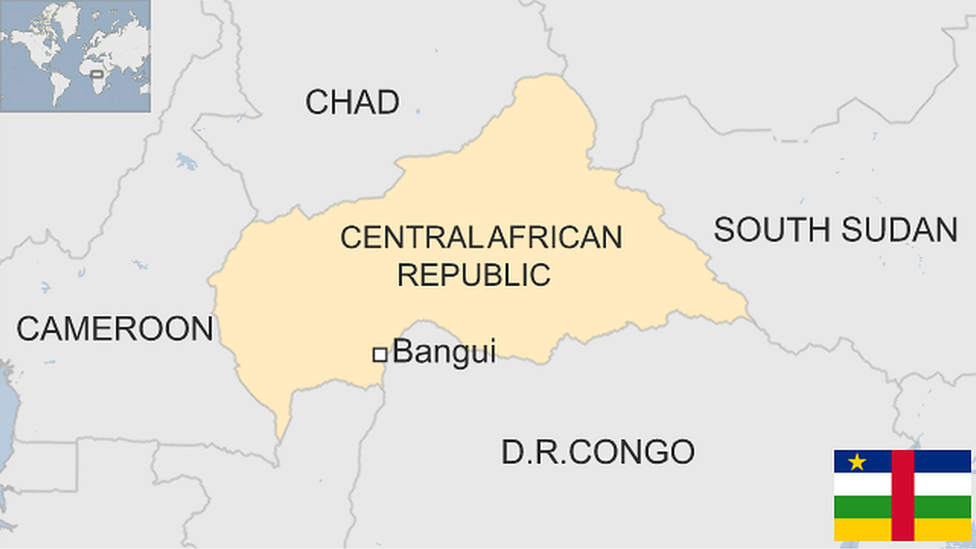Central African Republic 'descending into chaos' - UN
- Published
The BBC's Laeila Adjovi reports from Bossangoa
The Central African Republic (CAR) is descending into "complete chaos", the UN deputy secretary general has warned, calling for urgent action.
Jan Eliasson urged the Security Council to strengthen the African Union-led force in the country, and to turn it into a UN peacekeeping operation.
The CAR has been in turmoil since rebels seized power in March, with warnings of a possible genocide.
France has said it would contribute about 1,000 troops to the force.
Senior UN and French officials have warned that a cycle of violence between the Muslim minority, now in power, and the Christian majority could become a genocide.
It is not known how many people have been killed in the conflict this year because it is too dangerous to access the rural areas where most killings occur, a UN spokeswoman told the BBC.
However, she said that in the Bossangoa area alone, one of the worst-hit areas about 300km (185 miles) north of the capital, Bangui, several hundred people had been killed in the first two weeks of September.
Some 460,000 people - 10% of the population of 4.6 million - have fled their homes, while more than a million need food aid, according to the United Nations.
Tens of thousands have sought refuge at the Catholic mission in Bossangoa.
The priest in charge, Frederic Tonfio, told the BBC: "The tension here is palpable. People are absolutely terrified."
'Regional threat'
Mr Eliasson said there had been an surge in sexual violence, torture, summary executions and sectarian violence.
"The CAR is becoming a breeding ground for extremists and armed groups in a region that is already suffering from conflict and instability," he said.
"If this situation is left to fester, it may develop into a religious and ethnic conflict with long-standing consequences, even a civil war that could spread into neighbouring countries."
Some of CAR's neighbours such as South Sudan, the Sudanese region of Darfur, Chad and the Democratic Republic of Congo are trying to emerge from years of conflict and remain extremely unstable.
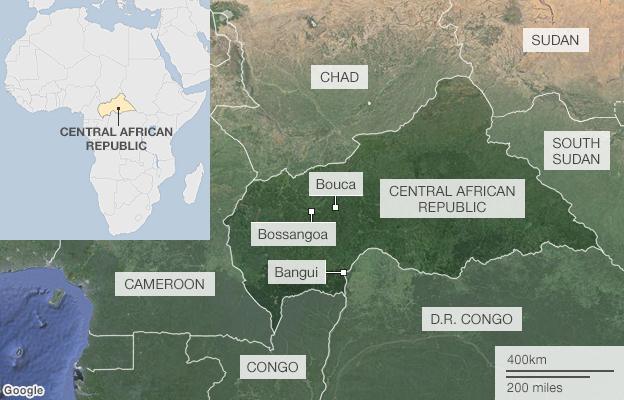
France, the former colonial power, currently has about 400 soldiers stationed in Bangui. Their mission is to protect French nationals.
On Tuesday, Defence Minister Jean-Yves Le Drian announced that France would send another 1,000 troops to the CAR.
UN Deputy Secretary General Jan Eliasson: "Children and women are at the greatest risk"
"We cannot have a country fall apart like that," he told Europe 1 radio: "There is the violence, massacres and humanitarian chaos that follow a collapse."
He added that - as was the case of France's intervention in Mali earlier this year- the troops would be deployed for "a short period, in the range of six months".
The UN Security Council is expected next week to adopt a resolution authorising the deployment of African Union troops with French support in the impoverished nation.
There are currently some 2,500 African troops in CAR, due to be increased to 3,600 by January 2014.
"A country in the heart of Africa is descending into complete chaos before our eyes," Mr Eliasson told the 15-member council on Monday.
"The situation requires prompt and decisive action."
Central African Republic crisis in numbers
Earlier this month, UN Secretary General Ban Ki-moon said communal violence in the CAR risked spiralling out of control.
Mr Ban backed the establishment of a UN peacekeeping force before the crisis leads to widespread atrocities.
The rebels - known as the Seleka - have replaced President Bozize with their own commander, Michel Djotodia.
Armed gangs, mainly former Seleka rebels, who are mostly Muslim, now control most of the landlocked country.
Some are mercenaries from neighbouring countries, such as Chad and the Darfur region of Sudan.
Mr Djotodia, the country's first Muslim leader, has formally disbanded the rebels and integrated many fighters into the national army.
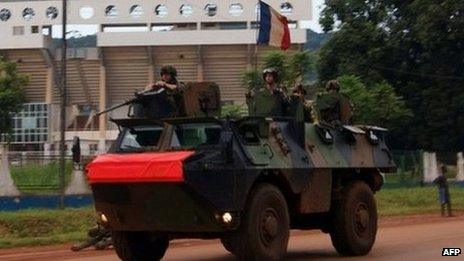
France currently has some 400 soldiers patrolling the capital, Bangui
But former rebels linked to Seleka have continued to launch attacks on scores of villages, prompting the emergence of local civilian protection groups.
The government in Bangui denies targeting any group, but recognises the rise in inter-community violence.
- Published1 May 2014
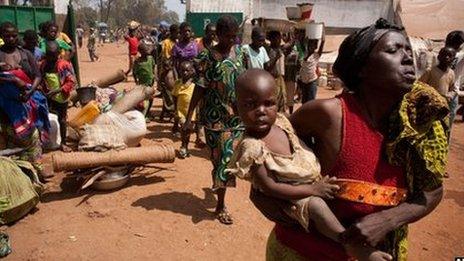
- Published4 November 2013
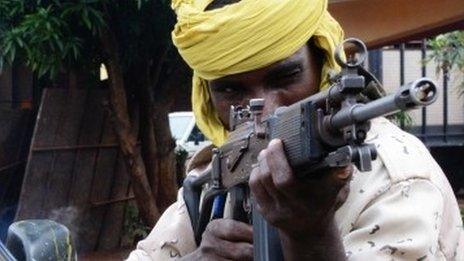
- Published20 August 2013
- Published11 January 2014
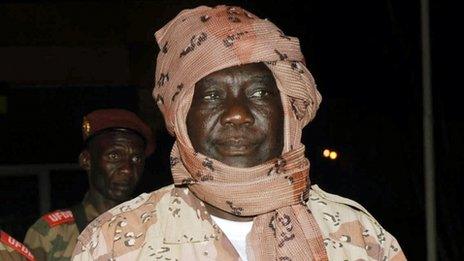
- Published22 August 2023
